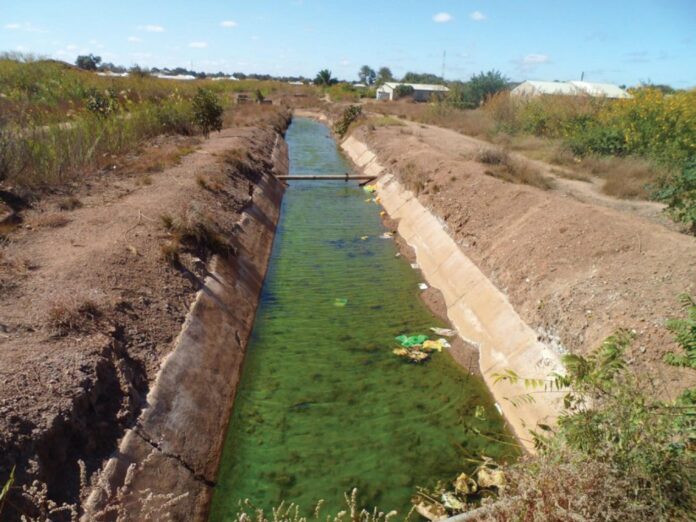Kabwe, a once-thriving mining town in Central Zambia, has become a harrowing symbol of environmental neglect and corporate responsibility. At the heart of this tragedy lies a former lead and zinc mine, originally owned by Anglo-American and other British colonial companies, which later fell under nationalisation and eventual closure in 1994. However, the devastating legacy of this mining operation persists, as the mine’s toxic waste was left unaddressed, and the repercussions now threaten the lives of approximately 200,000 people.
Kabwe has emerged as one of Africa’s worst pollution hotspots due to rampant contamination from the hazardous remnants of the closed mine. The massive, uncovered waste dumps have become a breeding ground for lead dust, which spreads relentlessly over nearby residential areas like Chowa, Kasanda, and Makululu. With each gust of wind, a deadly cloud descends, jeopardising the health and well-being of countless individuals within its reach.
Despite decades of warnings and mounting evidence of the catastrophic consequences, the urgent need for cleanup and remediation has been consistently overlooked. The toll on the local communities has been staggering, with alarming rates of lead poisoning and related health issues affecting the vulnerable populations living in these areas.
Call for action
Human Rights Watch has stepped forward as a relentless advocate for justice, imploring the Zambian government to take immediate action in developing a comprehensive remediation program. By invoking the “polluter pays” principle, the onus is placed on the companies once responsible for the pollution to offer technical and financial support forthe cleanup efforts. Furthermore, the organisation calls upon the aid of donor agencies and governments to join the cause and contribute crucial resources to address this devastating crisis.
“The Zambian government urgently needs to develop a comprehensive remediation program for the former lead mine in Kabwe,”demands Juliane Kippenberg, associate Child Rights Director at Human Rights Watch. “The government should seek technical and financial support for remediation from companies responsible for the pollution, in line with the ‘polluter pays’ principle, as well as from donor agencies and governments.”
As the situation intensifies, the fate of Kabwe and its inhabitants hangs in the balance. The window of opportunity to salvage and protect lives is rapidly closing, underscoring the need for swift action and unwavering determination to rectify the mistakes of the past and secure a safer, healthier future for all those affected.
Cry from the youth
Mwelwa Lungu, a youth group member at Environment Africa, echoes the heartfelt sentiments of the Kabwe community, declaring, “this is Kabwe, this is our home.” With unwavering determination, they firmly assert their right to inhabit a clean, healthy, and sustainable environment, one that does not jeopardize their well-being and vitality.
For generations, the people of Kabwe have borne the brunt of environmental neglect, facing the alarming consequences of toxic pollution from the abandoned lead and zinc mine.
Mwelwa Lungu and countless others speak not just for themselves but for the 200,000 lives put at risk due to the hazardous waste that lingers in their midst. Their demand for a comprehensive cleanup and remediation program is a plea for a safer and healthier future for their families, friends, and future generations.
Medical researchers estimate that over 95 percent of children living near the former mine in Kabwe have elevated lead levels in their blood. About half of them require urgent medical intervention.
Lead’s toxicity is a grave concern, leaving no room for safe exposure levels. This hazardous metal inflicts irreversible health effects on those exposed, leading to devastating consequences. From stunted growth and learning difficulties to memory loss and developmental delays, its impact knows no bounds.
The potential consequences of lead exposure are particularly alarming for children, making them exceptionally vulnerable.
The gravity of lead’s harmful effects has drawn global attention, prompting the World Health Organization (WHO) to categorise it among the 10 chemicals representing a “major public health concern.”
Learning from the past
Despite some efforts initiated by the Zambian government, funded by a World Bank loan, to combat the contamination in Kabwe, the scale of the problem remains alarming. While testing and treating affected children and cleaning up select homes and a highly polluted canal are significant steps forward, the core issue lies untouched – the source of contamination, the mine waste.
The toxic remnants from the mine act as an unyielding source of pollution, perpetuating the health risks and environmental degradation that has plagued the region for so long. Only by eliminating the source of contamination can the cycle of pollution be broken, and the nearby regions be restored to a clean and safe state.
In March 2022, President Hakainde Hichilema took a crucial step by instructing the Ministry of Green Economy and Environment to establish a technical committee dedicated to spearheading the comprehensive remediation process in Kabwe.
Where is the technical committee?
However, despite the president’s directive, the technical committee has yet to be operational. The delay in its establishment has raised serious concerns about the slow pace of action inaddressing the critical issue of lead pollution. The Ministry’s vision of transforming Kabwe into a “Green City” must underpin concrete plans that prioritize the cleanup and remediation of the hazardous mine waste.
Environment Africa and Human Rights Watch are calling for swift and decisive action, starting with the activation of the technical committee. In 2019, an in-depth Human Rights Watch investigation showed the harmful impacts of lead contamination on children’s rights to health, information, and education.
“As the duty bearers are running out of excuses, we young people are running out of time,” states Caleb Mulenga Bwalya from Environment Africa’s youth group. “The government needs to act now.”
Visit the following website for more: https://www.hrw.org/africa/zambia

Discover more from MAKANDAY
Subscribe to get the latest posts sent to your email.



